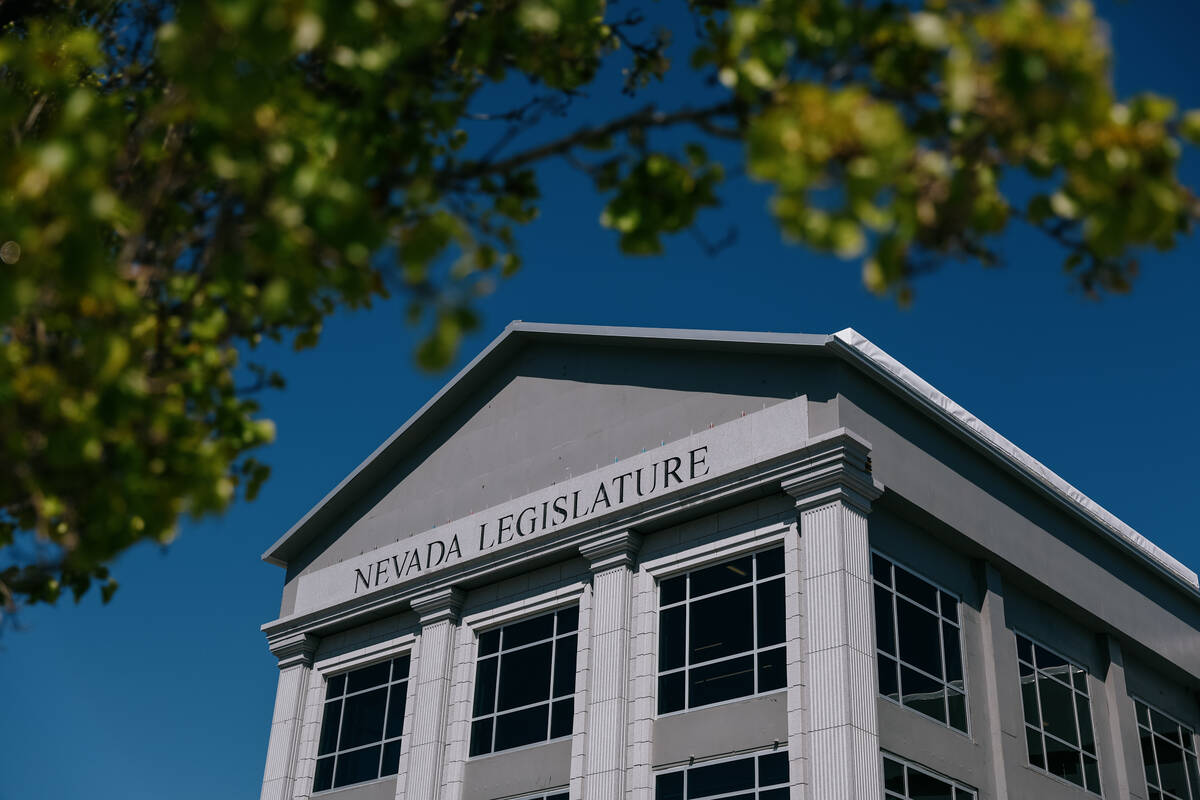Voter ID coming to Nevada? Top Democrat proposes amendment as compromise

CARSON CITY — A top Democratic lawmaker proposed adding voter ID requirements to an election bill Saturday — a significant show of compromise between Democrats and Republican Gov. Joe Lombardo as the 2025 legislative session’s adjournment approaches.
Assembly Speaker Steve Yeager presented Assembly Bill 499 in the Senate Finance Committee with amendments to resurrect provisions in a vetoed bill and appease a major wish of Lombardo’s. The bill includes expanding accessibility of mail ballot drop boxes — a Democratic effort that the governor vetoed — and voter ID, a longstanding desire of Lombardo’s.
AB 499 originally proposed requiring county clerks to establish and maintain a voter services portal allowing voters to access their voter registration information.
Yeager’s amended version is a result of conversations he had with Lombardo following his veto of AB 306. Lombardo made it clear he wanted additional measures regarding drop boxes, as well as a voter ID measure, Yeager said.
Nevada voters overwhelmingly supported Ballot Question 7 in 2024 that would implement voter ID as a constitutional amendment, but it must pass again in 2026 before taking effect.
Yeager said the 2027 Legislature would have to address the implementation of voter ID, but there would be a very short window to educate voters and implement the provision before the 2028 election year, chock-full of major elections, from the presidential preference primary to the 2028 general election.
“That is very little time to both implement the measure effectively and to educate voters how to vote under these new rules, which will be a sea change in the way we cast ballots in this state,” Yeager said.
Implementing voter ID earlier will provide more time for voters to adjust to the new rules, the speaker said. It will also form the implementation mechanism required under the ballot question earlier.
AB 499 proposes similar language from Ballot Question 7, Yeager said. It requires all voters who vote in person to present a photo ID, such as a driver’s license, military ID or a digital ID issued by the secretary of state.
If a voter doesn’t have any of those, they can still vote with a provisional ballot, but they must show ID later for their vote to be counted.
The amended bill also requires the Department of Motor Vehicles to issue free ID cards to voters experiencing financial hardship, Yeager said. The secretary of state will also be required to provide digital IDs, Yeager said. The secretary of state will have until 2028 to get digital IDs up and running.
It also would make changes to the mail ballot process, requiring voters who vote by mail to write in an identifying number, such as their Social Security number or voter registration number.
If either the voter’s signature or ID can’t be verified, election workers are required to contact the voter, much as they do now when signatures don’t match, Yeager said.
The bill also adds new rules for ballot drop boxes. Counties with large populations are required to provide a minimum number of secure drop boxes between the end of early voting and Election Day. They must be available at least seven hours on each of those days and no more than 12 hours, and they must be at places previously selected as an early vote or Election Day location, Yeager said.
AB 499 also establishes a statewide voter services portal to allow voters to view their registration information, find polling locations and access their digital ID, Yeager said.
The bill would appropriate nearly $550,000 to the DMV to provide free state IDs to those who need them. It would also appropriate $3.2 million to the secretary of state to fund a voter education campaign on how the new voting system will work.
“I understand and appreciate that this will be a particularly challenging and difficult bill for some to support,” Yeager said. “But I also believe we have a duty to move forward in a thorough and thoughtful fashion to avoid confusion later on.”
Nobody testified in support of the bill Saturday. Rather, people lined up to oppose the bill.
A’Esha Goins, first vice president of the NAACP in Las Vegas, said she was disturbed and appalled by the bill.
“It’s not just about, ‘yes, we’re asking for ID,’” Goins said. “It really has to do with what happens to the person when you show up to vote and then they have to show their ID, that feeling of having to validate themselves for something that they were already given the right to do.”
Groups including the ACLU of Nevada, the Campaign Legal Center and the Progressive Leadership Alliance of Nevada testified in opposition. Some conservatives also joined in.
Jim DeGraffenreid, the Nevada Republican Party’s national committeeman, said the party opposes the expanded drop box provisions and what he says are reduced signature verification procedures in the bill. The party does support the voter ID requirements, DeGraffenreid said, saying that voter ID does not reduce voter turnout and instead increases participation rates.
“But because of the other things in this bill, we reluctantly need to remain in opposition,” he said.
Contact Jessica Hill at jehill@reviewjournal.com. Follow @jess_hillyeah on X.